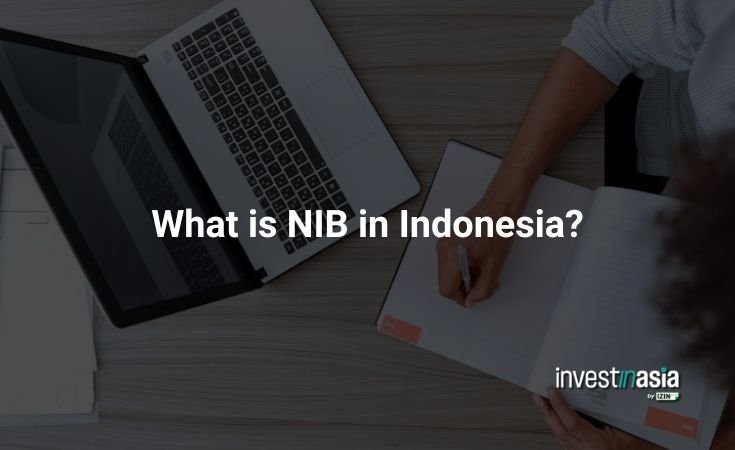A Nomor Induk Berusaha (NIB) is Indonesia’s mandatory Business Identification Number for companies operating under the OSS RBA licensing system, serving as the core legal identity for domestic and foreign investors. NIB Indonesia functions as a unified registration credential with integrated features for business legality, importer identification (API), and customs access (NIK), enabling companies to obtain risk-based permits issued by BKPM and related ministries. Businesses use the NIB for company verification, compliance tracking, and access to regulated sectors across provinces such as Jakarta, West Java, and Bali. Foreign-owned entities (PMA companies) secure the NIB through the OSS portal to activate operational licenses and enter Indonesia’s commercial ecosystem efficiently.
What is NIB in Indonesia?
The Nomor Induk Berusaha (NIB), or Business Registration Number, is a crucial identifier for companies and businesses operating in Indonesia. Issued by the Online Single Submission (OSS) system, the NIB simplifies the process of obtaining business licenses, streamlining regulatory procedures, and offering a comprehensive solution for various business needs.
After acquiring an NIB, companies can apply for a Business License (Izin Usaha) and Commercial or Operational Licenses (Izin Komersial atau Operasional), depending on their industry. The NIB consists of a unique 13-digit number, which includes a digital signature and a secure identifier for the business entity.
Also read: Risk-Based Business Licensing and OSS System in Indonesia
Functions and Benefits of the NIB


The NIB serves multiple functions, simplifying several business procedures:
- Company Registration: The NIB replaces the previously required Tanda Daftar Perusahaan (TDP), serving as the primary identification for businesses in Indonesia.
- Importer Identification: It functions as the Angka Pengenal Importir (API), granting businesses the ability to import goods and access Indonesia’s customs system.
- Access to Social Security: Upon registration, businesses are automatically enrolled in BPJS Health and BPJS Employment, ensuring compliance with Indonesia’s labor laws.
- Validity: The NIB stays active for the duration of the business’s operations, with no expiration as long as the company adheres to Indonesian regulations.
Also read: Top Foreign Investment Sectors in Indonesia
How to Obtain an NIB
Obtaining an NIB through the OSS system is a straightforward process, but businesses must ensure they meet certain prerequisites. The NIB can be issued for individuals, small and medium enterprises (SMEs), or larger corporate entities, including those with foreign investment. Here’s an overview of the steps and documentation required:
Determine Business Structure
Before applying for an NIB, it is essential to identify the appropriate business structure:
- Individual Enterprises (Perorangan)
- Small to Medium Enterprises (UMKM)
- Foreign Investment Companies (PMA)
- Local Corporations (Non-PMA)
Also read: The Types of Companies and Business Entities in Indonesia
Required Documentation
To register for an NIB, businesses must prepare the following documents:
- Identity Documents: National ID (KTP/NIK) for the person responsible for the business.
- Legal Entity Verification: For corporations like PTs (limited liability companies) or foundations, validation from the Ministry of Law and Human Rights (Kemenkumham) is required. The process can be completed via the AHU Online platform.
- Other Legal Documents: Businesses such as state-owned enterprises, cooperatives, or broadcasting entities may need to provide the legal basis for their establishment.
- Social Security: Proof of BPJS Employment (BPJamsostek) or BPJS Health registration.
- Foreign Labor Usage: Companies planning to hire foreign workers must obtain a Foreign Worker Utilization Plan (RPTKA).
Data Submission
Businesses need to provide essential information, including:
- Company name and address
- Business activities and fields
- Estimated capital investment
- Contact details and tax identification number (NPWP)
- For foreign investment companies, details on the foreign shareholders and the purpose of the investment are also required.
Once all data is submitted through the OSS platform, the NIB is issued without charge.
Also read: Where to Find Business Registration Number in Indonesia
The Role of OSS in Business Licensing


The OSS system, established under Government Regulation No. 5 of 2021, is designed to facilitate risk-based business licensing for all entities, including foreign companies. The system integrates with various government agencies, such as the Ministry of Law and Human Rights, the Directorate General of Taxes, and customs authorities, ensuring a seamless process for businesses.
Upon receiving the NIB, businesses can proceed to obtain the necessary licenses:
- Business License (Izin Usaha): This license is mandatory for all businesses operating in Indonesia, covering activities across the entire country.
- Commercial/Operational License: This license is required for businesses engaged in the sale of goods and services, covering aspects such as product certification, safety standards, and registration with the relevant authorities.
Also read: Corporate and Company Structure in Indonesia: Complete Guide
Important Considerations When Applying for an NIB
Several key factors must be kept in mind during the NIB application process:
- Ensure that the company’s objectives, as outlined in the company’s Articles of Association, align with Indonesia’s 2020 Standard Industrial Classification (KBLI).
- Verify that the business location holds the necessary permits, including environmental and land use permits.
- Maintain updated tax records for the business owner or responsible party.
- If the business is classified as environmentally impactful, an environmental impact analysis (AMDAL) is required before issuance.
Once the NIB and business licenses are in place, companies can operate smoothly in Indonesia, without legal obstacles or delays in obtaining permits.
Final Reminder: Comply with Legal Requirements
It is vital for foreign businesses, entrepreneurs, and investors to adhere to all relevant regulations when establishing a business in Indonesia. Ensuring compliance with the country’s legal and regulatory framework not only avoids potential penalties but also safeguards the business’s long-term success. Regular updates and alignment with Indonesian laws are essential for operating a legitimate business within the country.
By obtaining an NIB, your business will gain a strong legal foundation, allowing you to fully engage in the Indonesian market while meeting the necessary compliance standards.
To ensure your NIB application runs smoothly, consider seeking professional guidance. InvestinAsia is among the companies that specialize in aiding you with company establishment in Indonesia. We boast a team of seasoned experts who can guide you throughout the process of:
- Foreign company registration in Indonesia (PMA)
- Representative office in Indonesia
- Indonesia Local PT PMDN registration
- Indonesian Virtual office rental
- Indonesia Business registration number
- Business Licenses in Indonesia
- Trademark Registration in Indonesia
- Franchise License in Indonesia
If you are interested in starting a business and investment in Indonesia, you can start by contacting us for FREE consultation.
reference:
- BKPM
- Aseanbriefing





